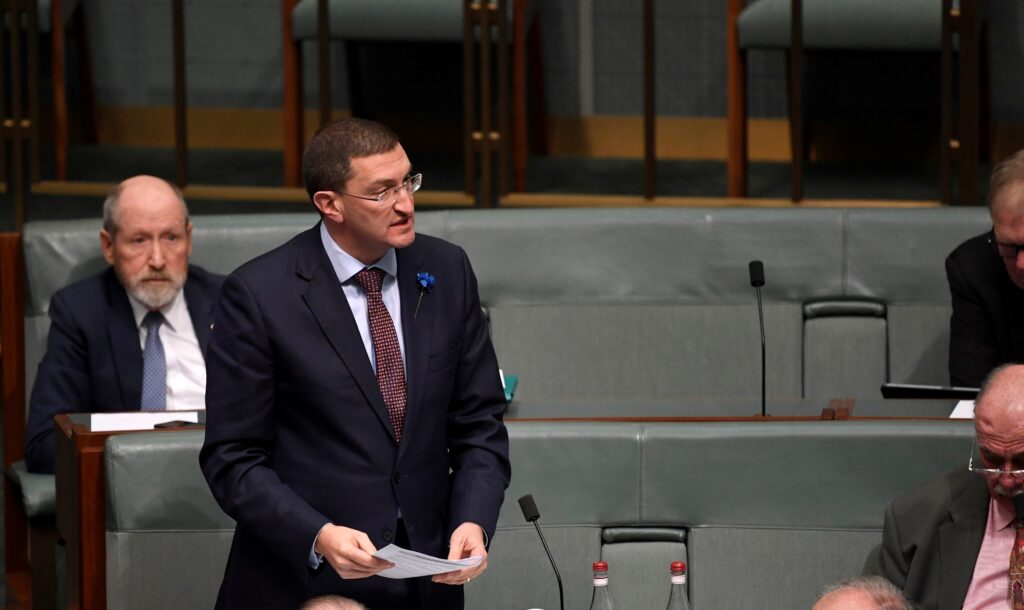I woke up this morning and checked my phone, as I do at the start of every day, to see the news that had occurred overnight, and it was a rather sad piece of news that greeted me this morning. It was the sad news of the death of a former member of this place, the wonderful former workplace relations minister Peter Reith. Peter Reith was a real workplace relations reformer. When he put forward changes in the workplace relations environment, he sought more jobs, better pay and higher productivity. That was the watchword of his time as minister. On the waterfront, famously, he took an industry where they said they couldn’t do more than nine crane lifts an hour and got the number of lifts up to the mid-20s. That was extraordinary, and it was because of the reforms that Peter Reith put into the system. Peter Reith’s reforms to create a more flexible economic system helped Australia to weather the economic shocks of the global financial crisis and COVID-19, because they had set in place the basic systems to improve the economy, improve productivity, improve things for business and improve things for working people as well.
So it’s particularly sad, on a day when we are mourning Peter Reith, to be dealing with a piece of workplace relations legislation that takes Australia backwards from the more jobs, better pay and higher productivity of the Reith era. These changes unfortunately make the system more complex. These changes will lead to Australia seeing more strikes. They will lead us to seeing the sorts of strikes that we saw in this building in 1996, when unions caused extraordinary damage to this building on the basis of protesting against the laws put in place by Peter Reith. You might ask: why have we got this particular piece of legislation before the House? This is payback for the generosity to the Labor Party of the union movement over many years. The Labor Party is 100 per cent owned by the unions, despite the fact that the unions only command the respect of fewer than nine per cent of employees in the private sector.
I want to focus particularly on issues of integrity in relation to this bill because we’ve heard a lot from the government about integrity over the last few years. We’ve heard a lot from them about the importance of a national integrity commission. There is a weakening of integrity in this bill, and similarly in the national integrity commission there is a weakening with the carveout for unions exercising power under a law of the Commonwealth. We’ve had two different answers from the Prime Minister in question time on this point in the last two days. His first answer was, ‘Well, the carveout is there because unions are regulated by the Fair Work Ombudsman and the Fair Work Commission.’ Today he denied altogether that there was a carveout.
My view is Labor has no integrity on integrity, and this bill is the centre of that because under this bill they are getting rid of some key integrity institutions in the workplace. Those integrity institutions include the Registered Organisations Commission and the Australian Building and Construction Commission. The Australian Building and Construction Commission is particular important because we know the sort of lawlessness that we used to see on the waterfront back in the day is the same sort of lawlessness that we continue to see on building sites. We know that there has been a great benefit to having the Australian Building and Construction Commission because it stops the bullying, it stop the intimidation and it stops the lawlessness that the CFMMEU likes to pervade across our economy.
When Labor abolished the ABCC last time, the working days lost to industrial action caused infrastructure like schools and hospitals to cost taxpayers 30 per cent more. Since we re-established the ABCC, the average rate of industrial days lost per thousand employees has dropped by over 90 per cent and $5.7 million in wages and entitlements for over 9,000 employees has been recovered. Why would you want to do in a commission that provides these sorts of benefits to our economy? The Labor Party want to abolish the ABCC again to please their union masters and the CFMMEU, and we know why. In the 2020 financial year alone the Labor Party received over $1.2 million in support from the CFMMEU, and this is payback time. Labor might talk a big game on integrity, but when it comes to protecting the integrity of Australian workplaces they are nobbling the institution that is there to protect workers who just want to go about their business and work on building sites. This is a disgrace, and it is such a sad day when we are faced with the loss of an absolutely vital regulator in the building industry, particularly because we keep being lectured by the Labor Party about the importance of integrity in our public life. If Labor were really serious about integrity, they would be holding on to the ABCC, they would be holding on to the ROC, but that is not what this bill does. (Time expired)




